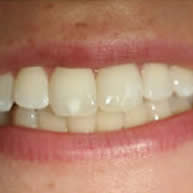Your family dentist knows that your child’s pacifier serves an important purpose. It soothes and comforts your child during difficult or stressful events. During the time of infancy, pacifiers are common and valued. Extended use of the pacifier during the development of the teeth, however, can lead to unwanted changes to your toddler’s mouth.
Sucking too hard on a pacifier, just like sucking too long on fingers or a thumb, can have serious consequences to a child’s teeth and even to the shape of the child’s face. Your family dentist will tell you that you should take away your child’s pacifier by the age of two years, preferably by the end of the first year. Failure to stop the use of a pacifier can lead to extended orthodontic care in the future.
Your family dentist can show you research that indicates that pacifier use beyond the second year is linked with crossbites, open bites, misaligned bites, a narrowed jaw, tongue thrust and malformed palate. It is also associated with an increased risk of a middle ear infection.
If your infant is using a pacifier, follow these guidelines:
- Clean the pacifiers regularly and properly to prevent bacterial growth.
- Discard and replace pacifiers that exhibit any signs of discoloration or cracking.
- Clean any new pacifiers prior to giving them to your baby.
- Make pacifiers available only during specific times, such as at naptime or bedtime.
- Purchase pacifiers specifically recommended by orthodontists for minimal damage to the mouth.
- Never allow your baby to “wear” the pacifier by tying it around his or her neck. This is dangerous. Pacifier clips can allow you to clip the pacifier to your baby’s clothing with a short, safe length of material.
Your family dentist will have important tips for you when you begin to wean your child away from pacifiers. Don’t let this habit extend beyond being useful to becoming harmful.
If you live in the Clinton NJ area contact us today






